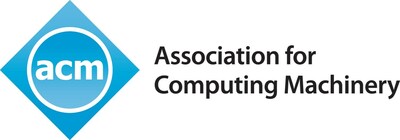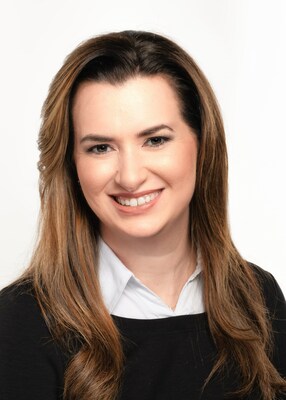Helping to Diagnose and Treat Heart Disease, Tumors, and Other Conditions at the Intersection of Physics, Molecular Biology, and High-Performance Computing
- Amanda Randles awarded the ACM Prize in Computing for her groundbreaking contributions to computational health.
- Randles developed computational tools for precise simulations of biophysical processes in diagnosing and treating human diseases.
- Significant advancements in 3D blood flow simulations for diagnosing and treating various human diseases.
- Randles's work enables cardiologists to plan therapeutic procedures using full 3D simulations of the heart.
- Randles's research extends to fluid structure interaction, aiding in understanding physiology at a cellular level.
- Potential applications of Randles's computational tools in tumor research and cancer prevention.
- Recognition of Randles's expertise and contributions in the field of biomedical sciences.
- Collaboration with Infosys , a global leader in digital services, to support her research endeavors.
- None.
Amanda Randles Awarded ACM Prize in Computing for Revolutionizing Medical Diagnostics
Randles is the Alfred Winborne and Victoria Stover Mordecai Associate Professor of Biomedical Sciences at Duke University's Pratt School of Engineering. She is known for developing new computational tools to harness the world's most powerful supercomputers to create highly precise simulations of biophysical processes. Her early work included creating accurate 3D simulations of how blood flows through the circulatory system. More recently, she and her team developed biomedical simulations that yield direct and concrete impacts on patient care, including simulations of 700,000 heart beats (the previous state-of-the-art was of 30 heart beats), the interaction of millions of cells, and cancer cells moving through the body.
The ACM Prize in Computing recognizes early-to-mid-career computer scientists whose research contributions have fundamental impact and broad implications. The award carries a prize of
Simulations of Blood Flow and Heart Research
Though still early in her career, Randles has led her field in developing computational tools to enable high-accuracy 3D blood flow simulations to diagnose and treat a variety of human diseases. Her major contributions to the field have included developing the first simulation of the coronary arterial tree at the cellular level for an entire heartbeat, using 1.5 million computer processing units (CPU's) to simulate blood flow across the scale of the whole human body, and using trained machine learning models to develop a framework for predicting key hemodynamic metrics under new conditions. She also developed a new way to model the human heart, which allowed heart simulations for a large group of patients. In turn, these simulations led to a series of papers in which she demonstrated that, to model complex flow phenomena, it is essential to take into account the full arterial tree including its side branches. Randles's full 3D simulations can also be used by cardiologists to plan therapeutic procedures. For example, with these simulations, doctors can determine, non-invasively, which coronary artery lesions need treatment, or perhaps how coronary artery hemodynamics may be impacted by the placement of a rigid metal stint into a flexible artery.
Randles's algorithm to simulate 700,000 heartbeats was developed using wearable data-collection devices to capture a complete profile of a person's circulatory state during normal activity. This was a major advancement of the existing method, which relied on standalone snapshots captured in atypical environments such as a doctor's office.
Work in Fluid Structure Interaction
As part of her broader work in using computers to better understand physiology, Randles has made specific contributions to fluid structure interaction, which studies the physics of a fluid interacting with a solid structure (such as the friction of blood with a vein wall). One of her major efforts in this area has been working with her team to develop the adaptive physics refinement (APR) framework for capturing cellular-scale interactions over the millimeter length scale. APR is a breakthrough technology that allows cellular mechanics to be captured in 3D over long length-scales, dramatically reducing computational costs (the time and energy required for the computation) and enabling simulations to capture traversal distances that were previously impossible. Importantly, APR increased the volume of fluid captured at cellular resolution by at least five orders of magnitude. In other work in fluid structure interaction, Randles's group developed a computational method that can be tuned to specific cell types. They validated this new model by comparing data from microfluidic experiments for cancer cells and red blood cells. Randles and her team also developed novel methods to enable the movements of hundreds of millions of cells to be processed on heterogeneous architectures (advanced hardware systems that integrate computer processing units and graphics processors).
Promise for Tumor Research and Cancer Prevention
Randles's computational tools for modeling the cardiovascular system can also be used to understand how tumors metastasize. She is working on developing simulations down to a single cell and the smallest blood vessel, which will track what organs tumor cells will reach through circulation. Oncologists will be able to use her models in decision-making. Her models will also better facilitate the testing of new implant devices that are being developed to filter metastatic cells.
"Developing the best tools to help doctors prevent disease and improve patient care is one of the most worthwhile endeavors," said ACM President Yannis Ioannidis. "Amanda Randles's work addresses some of humanity's most significant health challenges, such as heart disease and cancer. Every day, computers enable significant advances in many fields. Behind these advances there is always someone who has the vision to employ computing against a scientific challenge and the insight to devise and develop innovative methods to address the challenge. Amanda Randles has been that someone and has used her experience and technological breadth and depth to open new possibilities at the intersection of computation and biophysics. I am truly excited with what she has achieved and I'm eager to see where she takes us next. I always look forward to the announcement of the ACM Prize in Computing, ACM's second most prestigious honor after the ACM A.M. Turing Award. Amanda joins a long series of young professionals we have honored with this award, who are creating new paradigms of scientific thought and demonstrate with their work the vast potential of what's ahead in technology."
Salil Parekh, Chief Executive Officer, Infosys, said, "Amanda Randles' remarkable accomplishments stand as a testament to her expertise. Her innovative techniques will not only deepen our understanding of diseases but also herald a new era of biomedical simulation. Amanda's visionary contributions are poised to revolutionize the field and bring hope that tough medical challenges can be solved. As the founding sponsor of the prestigious ACM Prize in Computing, Infosys is proud to commend Amanda Randles."
Biographical Background
Amanda Randles is the Alfred Winborne and Victoria Stover Mordecai Associate Professor of Biomedical Sciences at Duke University. A graduate of Duke University with a BA in Physics and Computer Science, Randles received a PhD degree in Applied Physics and an SM degree in Computer Science from Harvard University.
Randles's honors include the ACM SIGHPC Emerging Woman Leader in Technical Computing Award, the NIH Pioneer Award, the NSF CAREER Award, the ACM Grace Murray Hopper Award, and the Alexandra Jane Noble Epiphany Award. Randles is a National Academy of Inventors Fellow, an ACM Distinguished Member, an IEEE Senior Member, and was named as an MIT TR35 Visionary.
Randles will be formally presented with the ACM Prize in Computing at the annual ACM Awards Banquet, which will be held this year on Saturday, June 22 at the Palace Hotel in
About the ACM Prize in Computing
The ACM Prize in Computing recognizes an early to mid-career fundamental innovative contribution in computing that, through its depth, impact, and broad implications, exemplifies the greatest achievements in the discipline. The award carries a prize of
About ACM
ACM, the Association for Computing Machinery, is the world's largest educational and scientific computing society, uniting computing educators, researchers, and professionals to inspire dialogue, share resources, and address the field's challenges. ACM strengthens the computing profession's collective voice through strong leadership, promotion of the highest standards, and recognition of technical excellence. ACM supports the professional growth of its members by providing opportunities for life-long learning, career development, and professional networking.
About Infosys
Infosys is a global leader in next-generation digital services and consulting. Over 300,000 of our people work to amplify human potential and create the next opportunity for people, businesses and communities. We enable clients in more than 56 countries to navigate their digital transformation. With over four decades of experience in managing the systems and workings of global enterprises, we expertly steer clients, as they navigate their digital transformation powered by cloud and AI. We enable them with an AI-first core, empower the business with agile digital at scale and drive continuous improvement with always-on learning through the transfer of digital skills, expertise, and ideas from our innovation ecosystem. We are deeply committed to being a well-governed, environmentally sustainable organization where diverse talent thrives in an inclusive workplace. Visit www.infosys.com to see how Infosys (NSE, BSE, NYSE: INFY) can help your enterprise navigate your next.
![]() View original content to download multimedia:https://www.prnewswire.com/news-releases/helping-to-diagnose-and-treat-heart-disease-tumors-and-other-conditions-at-the-intersection-of-physics-molecular-biology-and-high-performance-computing-302125219.html
View original content to download multimedia:https://www.prnewswire.com/news-releases/helping-to-diagnose-and-treat-heart-disease-tumors-and-other-conditions-at-the-intersection-of-physics-molecular-biology-and-high-performance-computing-302125219.html
SOURCE Association For Computing Machinery, Inc.









